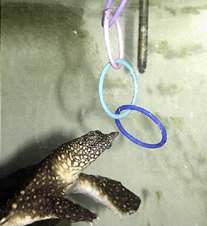A student, Charlotte (not her real name you can be sure) failed her first exam here at Cambridge. A crazy statistics exam that really has nothing to do with veterinary medicine, but it was the first thing that Charlotte had ever failed. Let’s face it, she had got into Cambridge university and people who do that generally haven’t failed much!
“Well done!” I said, “You’re one step ahead of everyone else!’
You can imagine the quizzical look I received in response to that, so I explained: everyone else would be worried before each exam – maybe this would be the one that they failed. It’s imposter syndrome. You trick yourself into believing that there must be some sort of mistake in you getting where you are: “They’ll find me out at some stage! It was just luck that got me here not my own merit. I’ll be found out at the next test!” But Charlotte would without doubt pass at the next attempt, and from there on in she would know that it is possible to fail and survive! This conversation was years ago, my prediction has been the case ever since.
The trouble with most vet students is that they don’t fail. That is until their first week working in practice. The road-traffic-accident cat that comes in on their first afternoon didn’t stand much of a chance it has to be said: pulmonary contusions, a fractured pelvis, a severe head injury. Maybe it was best that it didn’t survive. But not a good start for a new graduate… Unless they have already learnt that failure isn’t the end, and that this wasn’t their failure.
Just like Charlotte in the first term of her student life, the first months of working in practice is where new graduates need our support the most. They are amazing, and they need to continually be reminded of that. They’ve got through a course which honestly is far harder that the one we did – unless of course you’re a new graduate reading this!
The first months of working in practice is where new graduates need our support the most. They are amazing, and they need to continually be reminded of that
Fred Sanger had only developed his DNA sequencing technique five years earlier, winning a Nobel prize for it in 1980. We were still learning the details of nerve conduction discovered by Hodgkin and Huxley in 1954, for which they received a Nobel prize in 1963. Given that was the year I was born, their concepts still seemed fairly new, though in reality it wasn’t.
We were taught about voltage-gated sodium channels, the joy and passion of our physiology lecturers then and now, but looking back at the research papers in PubMed, there were only seven on them by 1982. Now there are 11,459. OK, so students are not expected to know them all, but this just shows how much more information there is to learn now. We need something more clinical, don’t we? All the preclinical students would shout hurrah!
Let’s look at non-steroidals for dogs: carprofen was introduced to the veterinary market in 1996, so we wouldn’t have had to learn much about non-steroidals in our clinical course back in the late ’80s, would we? “Use aspirin in dogs but not in cats,” was probably all we had in our notes, though sadly I’ve lost mine somewhere over the past 33 years. No matter – they wouldn’t be much use now.
I was given a wonderful set of notes written by a someone who was a student at the Royal Veterinary College back in the early 1940s. They were in four volumes, all copper plate writing on foolscap paper and beautifully bound. It was all you needed to know back then. The volumes went to the RCVS library I’m pleased to say, but not before I had perused and marvelled at them. Now everything is all online and of course in much, much more than four volumes.
There are benefits to having your lectures recorded for sure. Boring slow lectures – surely not at vet school, I hear you cry! – can be listened to at double speed. But, more usefully, if you miss a sentence or don’t understand something, you can rewind and listen again. That sounds good, doesn’t it? But it does turn an hour-long lecture into two hours if you are assiduous in your listening and note taking… which all goes back to that imposter syndrome.










